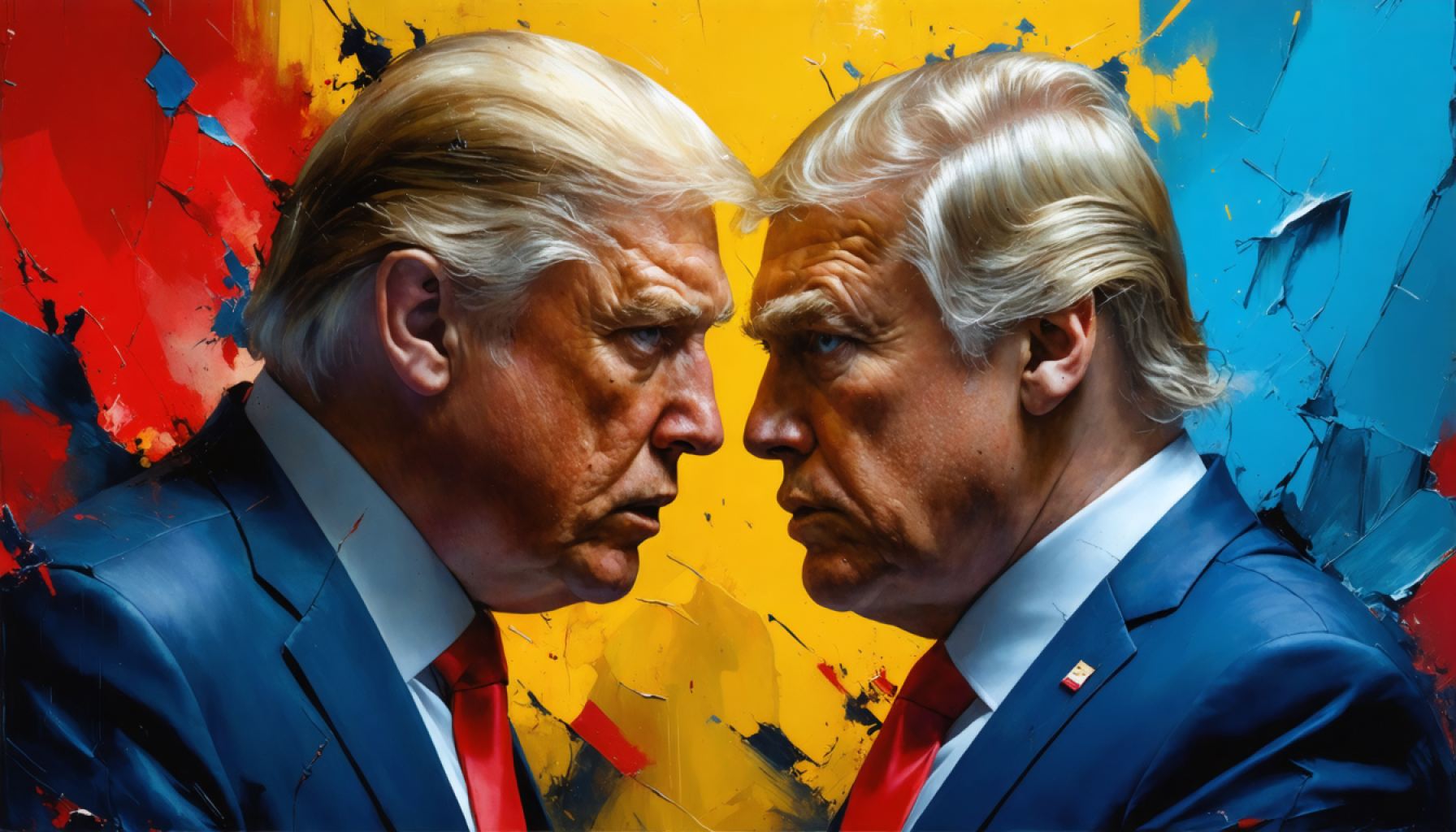
- Friedrich Merz and Olaf Scholz are key contenders in Germany’s upcoming electoral contest, representing contrasting political legacies.
- Their journeys are chronicled in a film by Mathis Feldhoff and Andreas Huppert, highlighting their campaign endeavors and personal transformations.
- Olaf Scholz brings extensive governmental experience, having served in Angela Merkel’s cabinet and as Chancellor, betting on a change in public sentiment for electoral success.
- Friedrich Merz aims for a political comeback, balancing his corporate background with a strategic campaign to overcome past challenges.
- The election poses critical questions about Germany’s future direction and the potential for candidates to convert skepticism into victory.
- Both candidates exemplify resilience and ambition, underscoring the transformational nature of political campaigns.
As Germany braces for its next electoral showdown, Friedrich Merz and Olaf Scholz emerge as titans of contrasting legacies, each poised at the precipice of a political metamorphosis. Carving through the chilly winds of political rivalry, Merz endeavors to cloak his impulsive edge with a veneer of statesmanship, while Scholz, the erstwhile silent bureaucrat, unfurls a surprisingly bold persona.
A recent film by Mathis Feldhoff and Andreas Huppert threads through their parallel yet divergent paths, encapsulating the transformative journeys of these two contenders. On the campaign trail, Merz and Scholz navigate the German political landscape with the meticulousness of seasoned adventurers. Cameras capture the crescendo of their confidence, from tense debates and vibrant rallies to the quiet backstage musings with allies who have walked beside them on this arduous journey.
The distinctions between the candidates reverberate through their histories. Scholz, familiar in the corridors of power, boasts robust governmental experience, having served in pivotal ministerial roles under Angela Merkel and as the Chancellor in Germany’s first three-party coalition government. Even in the throes of unpopularity, Scholz remains undaunted, banking on a seismic shift in public sentiment.
Merz, with his chapter of political exile and corporate exploits, plots a triumphant return with a fiery conviction that belies his measured facade. But the specter of uncertainty looms large; can he stave off the ghosts of past electoral missteps?
This evolving joust asks: Whose vision will shape Germany’s future, and can political reinvention within the heat of campaign convert skepticism into victory? As the countdown to the election day quickens, both candidates offer a masterclass in resilience and ambition, reminding us that transformations often emerge from the shadows of conflict.
Friedrich Merz vs. Olaf Scholz: The Political Titans Shaping Germany’s Future
How-To Steps & Life Hacks
Navigating political campaigns can be akin to managing a high-stakes project, with lessons applicable to professionals and leaders alike. Here are some strategies based on Merz and Scholz’s campaign tactics:
1. Stay Informed and Adapt: Continuously assess voter concerns and adapt your message. Both Merz and Scholz excel in this area, using data-driven insights to refine their strategies.
2. Engage with Stakeholders: Personal interactions matter. Both candidates emphasize direct engagement through rallies and debates, reflecting leadership traits required in business and community roles.
3. Leverage Multimedia: Effective use of film and social media to convey messages and project the candidates’ personas can be a powerful tool. Influence through visual storytelling is a key strategy.
Real-World Use Cases
In the business world, learning from the candidates’ contrasting strategies can inspire leaders. Scholz’s bureaucratic efficiency and Merz’s corporate savvy showcase diverse approaches to leadership that can guide organizational change, negotiation, and conflict resolution.
Market Forecasts & Industry Trends
The election’s outcome could influence Germany’s approach to climate policy, digital transformation, and economic recovery post-COVID. Scholz’s government experience may favor stability, while Merz’s corporate background could appeal to economic and technological innovation drivers.
Reviews & Comparisons
Critically analyzing both candidates, Scholz is seen as a steady, experienced leader with a deep understanding of policy intricacies. In contrast, Merz is viewed as a dynamic, somewhat disruptive force with a focus on reform. Reviews from political analysts often draw parallels to similar global political scenarios, offering a lens to predict future governance impacts.
Controversies & Limitations
Merz has faced criticism for his periods of political absence and corporate associations, while Scholz is scrutinized over his handling of various scandals during past tenures. These controversies highlight the importance of transparency and accountability in leadership roles.
Features, Specs & Pricing
Scholz’s platform emphasizes social policies and renewable energy investments. Merz focuses on tax reforms and boosting the economy. Understanding these platforms can guide prospective voters or international players in aligning their strategies with potential policy changes.
Security & Sustainability
Security concerns are pivotal in Germany’s election discourse, shaped by defense spending and energy independence debates. Sustainability is another critical factor, with Scholz advocating green policies, while Merz may initially focus more on financial sustainability.
Insights & Predictions
Election forecasts suggest that voter turnout and coalition-building will heavily influence the election outcome. Political analysts suggest that a close race could lead to extended negotiations, affecting Germany’s policy rollout speed.
Tutorials & Compatibility
For those less familiar with German politics, tutorials on the country’s electoral system and key political parties can provide context. Understanding these fundamentals enhances comprehension of election dynamics.
Pros & Cons Overview
Olaf Scholz
– Pros: Extensive experience, steady leadership
– Cons: Previous scandals, perceived lack of charisma
Friedrich Merz
– Pros: Bold vision, corporate experience
– Cons: Past political exits, perceived lack of consistency
Actionable Recommendations
– Stay Informed: Follow reliable news sources to keep abreast of election developments.
– Engage with Local Forums: Participate in local political discussions to truly understand voter sentiment and issues.
– Leverage Networking: Both professionally and socially, understanding political dynamics can aid in building stronger connections.
For further exploration of Germany’s political landscape, visit the official websites of major political parties or trusted news outlets such as Deutsche Welle for in-depth coverage.
With these insights and practical applications, we equip you to understand the unfolding German electoral drama and its broader implications.